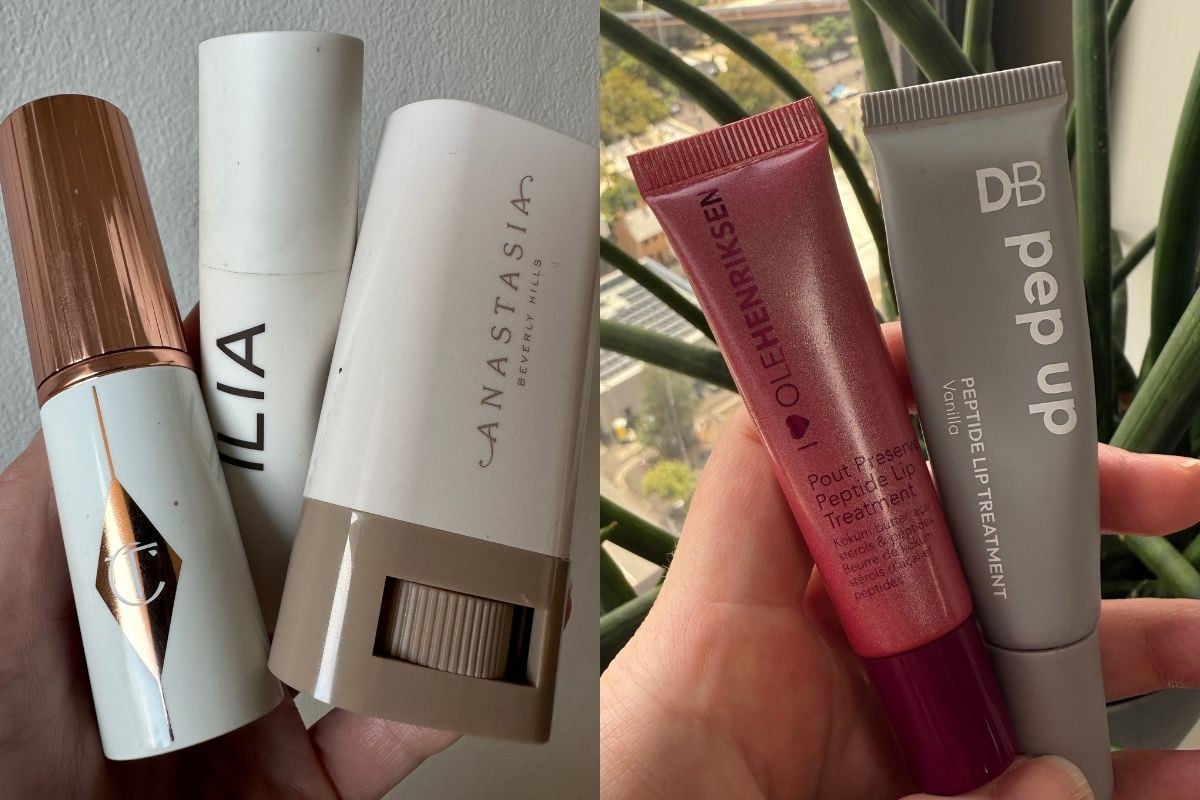
ICYMI, these days you'll be pretty hard-pressed to find makeup products that don't have buzzy ingredients like 'peptides', 'hyaluronic acid' or 'niacinamide' slapped on the front of the packaging. They're absolutely everywhere, and hybrid formulas have very much become part and parcel of new beauty products right now.
Think: Ole Heinriken Peptide Lip Treatment. Ilia Super Serum Skin Tint. Clarins Comfort Lip Oil — that kind of vibe.
But we have an important question we reckon you probably have, too: Do these ingredients in makeup actually… do anything for your skin?
Watch: Speaking of beauty, have you seen Mamamia write Juna Xu's lipstick hack? It's good. CLEVER. Worth a try. Post continues below.
The short answer? Yes. But before you get too excited, there are some things you need to consider.
Because the effectiveness of skincare ingredients in makeup depends on a few different factors, including the specific ingredients used, their concentration, and how they are formulated into the product.
Ready to get into it? Off we go.




























































































